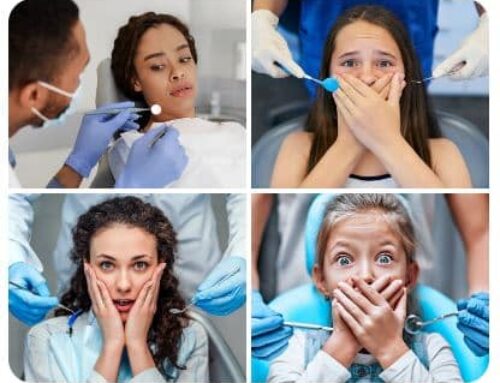If you’re like most people, you probably brush your teeth twice a day and floss once a week. But is that enough to keep your teeth healthy? Not always.
One of the best ways to keep your teeth healthy is to get a general dental check-up. This check will include a exam of your teeth and gums, as well as any other dental problems you may have. It’s important to get this check-up every couple of years, especially if you’re age 65 or older.
If you’re experiencing any tooth pain or difficulty chewing, it’s important to see your dentist right away. A general dental check-up can catch many dental problems in early stages, which can usually be treated without surgery or other major complications.
What Does a General Check Up Involve?
A general dental check-up is a routine examination of the teeth, gums and other parts of the mouth.
A general dental check-up usually involves:
- A visual examination of the teeth and gums by a dentist to detect any problems.
- The dentist may use an instrument to scrape off some plaque from your teeth to examine it under a microscope for signs of disease.
- The dentist may take x-rays or photographs of your teeth and mouth.
- The dentist may look at your tongue to see if anything is stuck on it, or examine it for signs of oral cancer.
The dentist will examine your mouth, teeth and gums to check for cavities, tooth decay, gum disease and other dental problems. They will also evaluate the position of your teeth and jaws as well as your bite. The dentist may also take impressions of your teeth to make sure they are healthy.
Let’s take a look at the process in a bit more detail.
A thorough examination of your teeth and gums
This exam will look for any signs of tooth decay, gum disease, broken, chipped or cracked teeth or oral cancer. These are often things that you will miss at home, firstly due to the position you need to be in to see these issues, and secondly because you don’t always know what you are looking for.
An experienced dentist will be able to explain the process to you, and let you know what they are doing at each step so that you understand what they are looking for.
X-rays may be taken to check for problems
Much like in other parts of the body, not all issues with your teeth can be seen with the naked eye, particularly if you are having pain deep within your jaw. These xrays are designed to look for signs of tooth decay, bone loss and other issues. If anything unusual is foundl, your dentist may perform additional tests such as taking a sample of tissue from your mouth for further testing and diagnosis.
General Dental Clean
As part of your general dental check up, your dentist is likely to do a professional teeth clean which involves the removal of tartar (hardened plaque) from your teeth. This can help prevent tooth decay and gum disease.
Dentists clean your teeth by using a variety of tools and techniques. They may use ultrasonic devices, lasers, or drills to remove plaque and tartar from the surface of your teeth. They may also use an air-polishing device to remove plaque and stains from your tooth surfaces.
Once they have finished cleaning your teeth, the dentist will polish them with either a toothpaste or an abrasive paste that contains chemicals that kill bacteria and prevent new plaque from forming.
Fluoride Treatment to Prevent Tooth Decay
We know that fluoride helps to prevent tooth decay. A fluoride treatment can make your teeth more resistant to acid attacks from plaque, bacteria and sugars in your mouth. These treatments are a great way to prevent cavities in those who are prone to getting them, and helps to build stronger, healthier teeth. This treatment should be done at least yearly, but it is recommended to have it done six monthly during your normal clean and check up.
Tips to Cleaning and Flossing Your Teeth
Sometimes we can all get a bit lax in cleaning and flossing our teeth. But cleaning teeth is an important part of your oral hygiene routine. You should brush your teeth at least twice a day and floss once a day.
There are some things that you can do to make this process easier. You should brush your teeth in circular motions, use fluoride toothpaste, and make sure to use a toothbrush that is soft on the gums.
You should also not forget to floss; it will help remove any food particles or plaque from between the teeth that brushing cannot reach. Flossing should be done once per day and it will help reduce bad breath as well as provide relief for gum problems such as bleeding gums or inflammation of the gums.
You can also use mouthwash after brushing your teeth for added protection against bacteria in the mouth. Mouthwash works by killing bacteria in the mouth by breaking down their cell walls with alcohol, which leaves them unable to grow or reproduce and therefore less likely to cause illness inside your body.
How Often Should You Have a General Dental Check Up?
You should schedule a regular dental check up at least every six months, and if you have children you should get them started in this process quite early so that it becomes routine for them. Depending on your individual circumstances, you may need to visit the dentist more regularly but your dental team will discuss treatments and check ups with you.
When you visit Road Dental you can be sure that our dental team will take an interest in your oral health. We’ll make time to discuss any concerns with you and make suggestions on improvements and treatments.
We understand that going to the dentist can be a daunting experience for some people. Located in Greenslopes, Road Dental offer a wide range of services from preventive to cosmetic dentistry. Our aim is to provide our patients with the highest quality of care possible.
Our friendly and experienced team will make sure that you feel comfortable and relaxed throughout your appointment. We look forward to seeing you soon!







Leave a Comment